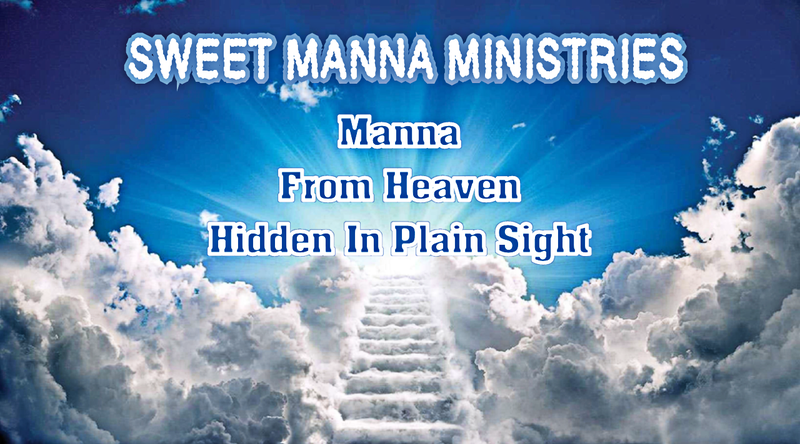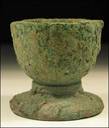The Teaching Ministry of
Rev. Marjorie Kummrow
Bible Studies
This ministry has made a choice to be "Biblically correct" as opposed to "politically correct" therefore we have forfeited the non-profit status available to us. Please note that all donations to this ministry are not tax deductible. Thank you for your support.
The Spring Feasts
The Cup of Redemption
and the Afikoman
Part 9
The Cup of Redemption and the Afikoman - Part 9
Before the Seder meal the first and second cups of wine are lifted, blessed and drunk. It is the next two cups that I want us to pay particular attention to because these two cups are the cups of the new covenant. They are the betrothal cup and the wedding cup. Both of these cups are served after the meal. The third cup of wine served after the meal is called the Cup of Redemption. It is the cup that represents the statement that God made when He said, “I will redeem you with an outstretched arm”. That outstretched arm is Yeshua (Jesus). It was His outstretched arm that created the heavens and the earth.22 It was His outstretched arm that brought the Hebrews out of Egypt. It was Yeshua’s outstretched arms upon the cross of Calvary that bought us our redemption. This cup was also called the “Cup of Blessing”. Paul says in 1 Cor 10:16 "The cup of blessing which we bless, is it not the communion of the blood of Messiah”?
Yeshua gave this cup to His disciples to drink. For years the people of God had been rehearsing year after year by drinking of this cup of deliverance by looking back at their deliverance from Egypt. Although God designed these feasts as feasts to remember how He delivered them out of Egypt, He was also painting a picture of mankind’s final deliverance that would be accomplished in Yeshua the Messiah. This Passover was the Passover that all other Passovers pointed to. It was the fulfillment of the things hoped for in the dress rehearsal. The final blood sacrifice would take place at this appointed time and in this appointed place in Jerusalem; when the Lamb of God is sacrificed on the Cross of Calvary.
This is cup of the covenant! This is the cup that Yeshua lifted after the meal. We know this because He broke bread first, and the bread that He broke is the dessert bread called the afikoman. It is Matzah that has been broken and set aside earlier, to be eaten after the meal with the third cup of wine. This is the only cup where bread is eaten first. At the 4th step of the ritual meal, three pieces of unleavened bread or Matzah are placed one on top of the other with a napkin in between each piece. The middle piece known as the afikoman or dessert bread is broken in half. One piece is shared among the people gathered at the table. The largest broken piece is hidden by wrapping it in a white linen napkin and setting it aside to later be brought out as the dessert bread. Nothing was to be eaten after eating the afikoman, because the taste of the afikoman was to linger in the mouth. The symbolism in the afikoman is ever so tasty!
Three slices of unleavened bread are put together representing the Father, the Son, and the Holy Spirit. The piece in the center that is broken represents the Messiah that died of a broken heart. This piece is wrapped in a white linen napkin and hidden. Messiah was hidden for 4,000 years before His first coming. After His death He was wrapped in strips of white linen grave cloth and taken to the tomb. A linen face cloth covered his face in the tomb. When He arose before He left the tomb He took the time to fold the linen face cloth into a napkin 23 as a sign that the afikoman that was wrapped in the napkin was no longer hidden, but that He had conquered death and was alive! The taste of the afikoman was to linger in the mouth. The taste of the afikoman has lingered for 2000 years. Are we not told to taste and see that the Lord is good? This 4th step in the ritual meal represents the door; once again we see the symbolism pointing to Yeshua, (Jesus). May the sweet taste of our dessert bread linger in our mouths for ever and ever. Yeshua is the sweet bread of life and no other bread will ever satisfy our hunger.
22 Jer 32:17
23 John 20:7
To continue with Part 10 of this series, click on "The Last Supper "
Be Blessed,
Rev. Marjorie
marjorie@sweetmanna.org
Contact us to be put on our email list at mailinglist@sweetmanna.org or make a prayer request at prayerwarrior@sweetmanna.org

